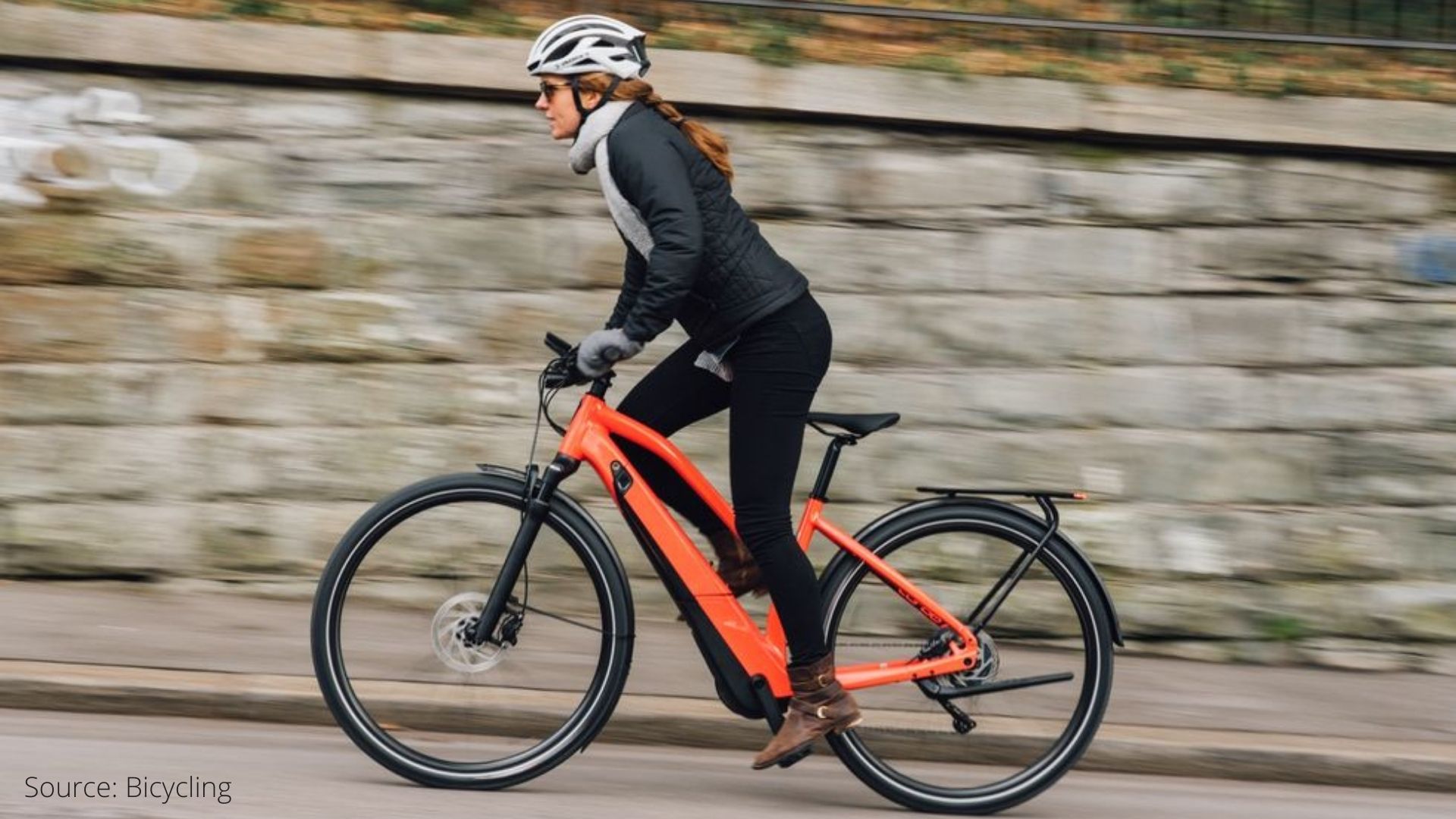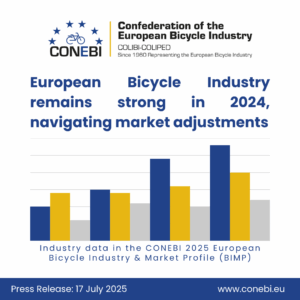Brussels – 3 May 2021. The European Commission recently published its proposal for a new EU Machinery Legislation proposing to exclude from the scope of the new legislation all “vehicles which have as their only objective the transport of goods or persons”, thereby creating uncertainty in the Bicycle Industry.
The EU Machinery Directive 2006/42/EC is a key legislation for the EU Bicycle Industry and provides the same technical regulation for Electrically Power Assisted Cycles (EPAC), commonly known as e-bikes, across the EU. Additionally, the well-established standard EN 15194:2017 for EPACs is harmonised with the Machinery Directive. The benefit of a harmonised standard lies in its harmonisation. By using a harmonised standard manufacturers can be certain that they comply with all the requirements mandated by the Machinery Directive and prove that their product is safe.
Due to the significant size of the E-Bike market, which is forecasted to reach around 4.5 million units in 2020, it is important that a robust and efficient legislative framework for the technical requirements of e-bikes is in place at the EU level. The EU Bicycle Industry has positive experiences with e-bikes being legislated under the EU Machinery Directive with the harmonised standard EN 15194:2017. This standard was developed in cooperation with the industry and is constantly being improved to keep in line with the latest technological developments. Thanks to this harmonisation the industry has consistently ensured that a safe product is being placed on the European market.
CONEBI was officially appointed as expert member of the European Commission’s Machinery Working Group, which is in charge of discussing the Machinery Directive and its harmonised standards. With regard to the European Commission’s proposal to exclude e-bikes from the scope of the new Machinery Regulation, CONEBI is afraid of the uncertainty this will create for the industry.
As one of the reasons for removing e-bikes from the scope, the Commission cites that the legal framework was not originally intended for vehicles used on the road and as such road safety risks are not considered. However, the Commission neither assesses the implication for the bicycle industry, nor proposes any alternative framework for e-bikes. The fall back option for all products in the European market is the General Product Safety Directive 2001/95/EC, which would be less suitable as it is less specific than the Machinery legislation. In addition, the European Commission did not analyse the costs and benefits of removing e-bikes from the scope of the Machinery legislation in its impact assessment. Harmonised standards are an invaluable asset for the industry and for the consumers as they are used to demonstrate that the product complies with relevant EU legislation and therefore ease market entry. Removing e-bikes from the scope of the Machinery Directive also means turning away from successfully harmonised standards.
The CONEBI Neuberger E-Bike Working Group is in direct contact with the European Commission as well as with the other European authorities to voice the position and the concerns of the Bicycle, E-Bike, Parts & Accessories Industries in Europe. First and foremost, it needs to be ensured that there is a robust and appropriate legislative framework in place, which supports further safe products to be placed on the European market without undoing years of successful standardisation work of the industry.
The legislative process at the European level is at the beginning and a lot must still be discussed: as an extremely important file that can have a big impact for the industry, it is high on CONEBI’s work agenda. For more information you can contact the CONEBI secretariat.
CONEBI Secretariat





